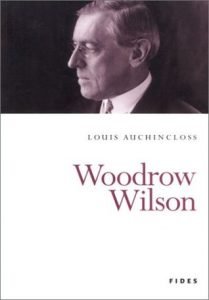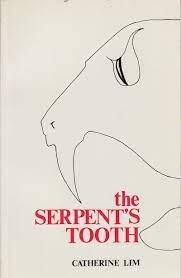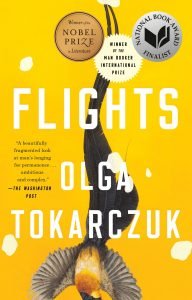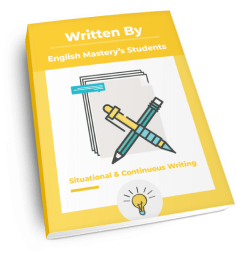
Read to Write: 5 Things A1 Students Do When They Read A Book
Are you a voracious reader? Good for you.
Are you a super-fast reader? If your answer is “Yes”, you may want to think about slowing down.
Why?
You are missing out on a vital part of the book reading experience — the beautiful world of language. Focusing on language can help you to improve your essay writing and performance in other sections of the English exam!
I was a voracious reader too when I was a child, but I didn’t read fast. As I aspired to be a TV news anchor, I used to read books out loud. I didn’t know it back then, but taking my time to articulate each word got me to immerse in the language.
Later on, during my secondary school years, I would “collect” beautiful phrases from books I read, jotting them down in a notebook. Then whenever the opportunities arose, I would use appropriate ones in my writings!
5 Benefits of Reading to Learn How to Write!
Here are five benefits you can gain from reading to learn how to write!
1. Learn new words/phrases.
Reading is the most natural and effective way of picking up new words or phrases that can expand your treasure trove of vocabulary for you to use in your writing. Take a look at how my favourite phrase, “pale simulacrum”, is used in the passage below:

Excerpt from Woodrow Wilson, by Louis Auchincloss
The Wilson who at last recovered some of his health was a pale simulacrum of the man he had been. He was… unable to take care of business with anything like the wonderful efficiency that had characterized his former activities.
This phrase, “pale simulacrum”, which I encountered in a book back in Secondary Three, has stayed with me over the years. Back in those days, I used to delight in inserting it during the exams to end my compositions with an impressive flourish. Meaning “an inadequate representation/image”, it can be used in compositions about an event or a person to great effect:At the end of the day, what I had feared was only a pale simulacrum of what actually happened on that fateful day. Thus, I will never forget…
So keep a notebook or use a device to note down interesting words/phrases.
❋ A top tip is look the phrases up on the Internet to see how they are used in different contexts. This is an important step you must not miss out. Then, give them a try in class!
2. Build awareness of word choices.Slowing down to pay attention to the author’s word choices can build your awareness of determining which words are the most accurate in expressing your intended meaning. Take a close look at the following passage, particularly the words highlighted in bold:

Excerpt from The Gone-Away World, by Nick Harkaway
The lights went out in the Nameless Bar just after nine… The fluorescent over the table blinked out, then came back, and the glass-fronted fridge gave a low, lurching hum. The wiring buzzed–and then it was dark. A faint sheen of static danced on the TV on its shelf, and the green exit lamp sputtered by the door.
Why has the author decided to link those particular verbs (“blinked”, “lurching”, “danced”, etc.) to the inanimate objects? You see, by using verbs that emphasise movement, the inanimate objects seem to come to life. This description “humanises” the Nameless Bar and thus draws the reader into the “drama” of what would have been a very ordinary description of an electricity outage at a bar.
3. Improve your grammar.

Excerpt from The Serpent’s Tooth, by Catherine Lim
The brothers always shared out the costs of the birthday dinner and the medical treatments of the old ones; it was a vague, understood thing from the time each brother had started working and drawing a salary.
If you slow down your reading to observe the author’s use of the grammar, you will notice the use of the simple past tense (“shared” and “was”) and the past participle (“had started”) in this long sentence.
Why are these two verb forms used in the passage?
The use of the simple past tense clearly situates the story events in the past. Furthermore, within this context, the simple past tense is also used to state a fact about the brother’s practice of sharing costs.
Then the use of the past participle, “had started”, emphasises that the brother’s tacit practice of sharing the costs began only after they had started working.
Another thing to note is the choice of the punctuation in this passage. Why is the semi-colon, “;”, used instead of a full-stop, “.”?
The choice of the semi-colon here illuminates the close connection between the ideas expressed in the two statements. Do you see how the second part of the sentence — that they had started engaging in this practice — adds to the idea of the brothers’ cost-sharing practice?
4. See how dialogue brings characters to life.

Excerpt from The Serpent’s Tooth, by Catherine Lim
The cost — Wee Tiong had been most concerned when Wee Boon told him that it would be at the Shanghai Restaurant.
“I thought we had agreed it would be at the Kai Leong Restaurant — ” “I know, I know,” said Wee Boon, “but Angela said the food there is no good, and for a 75th birthday dinner, it might as well be the best.”
And at this point Angela had stepped in and said, with the casualness of a well-rehearsed response, “You needn’t worry about the extra cost, Wee Tiong. Boon will see to that. You pay your original share, that’s all.”
Can you see how the dialogue captures the perceptions and the personalities of the individual characters? From their dialogue, you can tell that Wee Tiong has money worries, while Wee Boon and Angela who may be comparatively more well-off are willing to splurge on the party.
Furthermore, the phrase, “casualness of a well-rehearsed response”, also reveals that Angela is a discerning person who had already anticipated Wee Tiong’s reaction and prepared a response to defuse a potential conflict.
5. Feel inspired to write evocative descriptions.
As you read the following descriptive passage, consider which of your five senses are evoked. What impact does this have on you as a reader?

Excerpt from Flights, by Olga Tokarczuk, translated by Jennifer Croft
It’s dark in the house, and the air in the rooms slowly cools, dims. There’s no else here; they’ve left, they’r
e gone, though you can still hear their voices dying down, that shuffling, the echoes of their footsteps, some distant laughter. Out the window the courtyard is empty. Darkness spreads softly from the sky, settling on everything like black dew.
Apart from stimulating the visual and tactile senses with lines that capture the pervading darkness and the coolness of the air, the writing also triggers the emotional senses. The “recalled sounds” of voices and footsteps hark back to a past when the atmosphere of the house had once been warm and lively.
This description that combines both the physical and emotional senses produces a melancholic effect that is reinforced by the oxymoronic simile likening the darkness to “black dew”. It seems odd to associate dew, the morning drops of moisture, with darkness, but this unusual linkage helps to convey this poignant longing for freshness and renewal that has been irreversibly lost.
Now, if you have been reading quickly, just for the plot, you would have missed out on learning from the nuanced effects of the descriptions in this passage.
So next time, if you find yourself racing through a book to get to the ending, just take a breath, slow down, and look closely at the language. You may be pleasantly surprised by your experience.But make sure that you are reading books written by outstanding authors. Ask your teachers, go to local libraries and check out book clubs to put together a list of recommended titles. Savour your reading!




